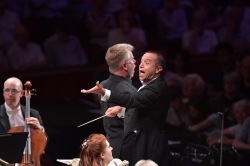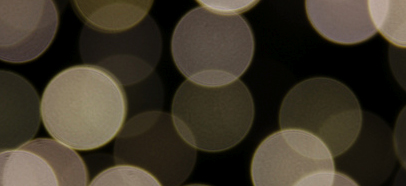
Writing about Wagner or choral works are a bit of a nightmare.
You need to know the works inside out so you can reference the various signposts in what you’re writing about. If there aren’t any signposts then everything just presents itself as a bit of an amorphous blob.
Fortunately, there is another way to talk about tonight’s Prom: by using the emotions the music triggered in me. And at various those emotions were unexpected, sometimes indescribable, but all of them exquisite.
The final scene of Die Walküre, the first half of tonight’s Prom felt familiar, reassuring and still gratifyingly rich. A lot of that is down to the tremendous introduction I had to the work in Budapest earlier this year. A special time.
Tonight’s performance of the last scene of Die Walküre by the BBC National Orchestra of Wales under Mark Wigglesworth gave me the chance not only to revisit happy memories but also to go deeper with the music.
And as I did so, I overlooked the promised conclusion implicit in Wagner’s writing: that much-needed nearly understated climax that creeps up on you unexpected and gives you the release you hadn’t realised I needed.
Wagner’s music is now fast becoming a drug. I don’t think I’ll ever tire of it.
Tippett’s The Child of Our Time was a moving experience. There was a bleakness to his writing – a surprising lushness to his scoring too. I expected him to be more like Britten. Now I’ve had an introduction to Tippett’s seminal work, I’m now wishing Britten had had the balls to be more daring in his writing. My childhood hero now seems a little tame in comparison.
My overwhelming impression of the work is how unexpectedly timely it felt. There is a realism to it which is neither over-indulgent nor superficial.
Its origins – inspired by a pre-WW2 shooting of a Naxi diplomat by a Jew – might at first seem dated. But the universal messages – a grim struggle between the horrors of reality and a vague sense of hope – still resonate today. It’s music which doesn’t have the answers, but explains reality in such a way you can reconcile yourself with it. At least that’s how I heard. And I was grateful for it too.
That experience of hearing it for the first time makes Child of Our Time an incredibly important composition for me as a listener. And judging by the warm prolonged applause in the hall tonight, a lot of that was down to the BBC National Orchestra and Chorus of Wales.
A few years ago – when I was partial to a roll-up – I’d spend my cigarette breaks moaning to a former colleague about Doctor Who.
It wasn’t for me. It was an intense disappointment. That bloke Russell T Davies liked comedy more than sci-fi. He might have said he loved Doctor Who, but as far as I could see he didn’t get it like I did. If I’d met him I’d have told him. And maybe that’s why he and his cohort turned me down for an interview so unceremoniously.
He gave the BBC National Orchestra of Wales way too much air time. There could be a lot less music. Everybody should stop running around. Why was it I couldn’t understand anything of what had happened when the final credits rolled? Why the hell couldn’t he write something especially for me? It wasn’t like I hadn’t remained faithful to the cause. Yes, really. Why had he let me down? I had been so excited when it was announced it was coming back.
There were times when I wondered whether that former colleague had a hotter line to the impenetrable offices of Russell T Davies and Julie Gardner than I perceived my blog had.
And then Steven Moffat wrote that thing with the statues. Blinking suddenly became dangerous. Those who dared to dream stopped for a breath. Could this bloke Moffat be the answer?
I’ve waxed lyrical before about his efforts in the last season of Doctor Who. The breath I drew when I watched his first story was exhaled when I quickly realised the Scottish bloke with the curly hair wasn’t the one-hit wonder I worried he might be.
Sure. His first season was subject to quite a bit of running around. And really, the Blu-Ray I purchased has such shocking examples of poor post-production audio mixes I’d hesitate from purchasing another set unless I’d received personal assurances such ‘issues’ had been ironed out. (Somebody .. somewhere .. sort that particular problem out, will you?)
But. His second season is .. basing my opinion on the season opener at least .. so incredibly close to how I demand my Doctor Who to be as to make me want to stop him in his tracks the next time I see him outside BBC Television Centre and plant a smacker on the man’s lips. It’s dark. It’s exciting. It’s made me draw breath.
Just so we’re clear … this (finally) is how I expected, how I hoped present day Doctor Who to be. If you haven’t seen it yet, then you must.
Thank you Mr Moffat. I really appreciate your efforts. Yours too Mr Wenger. And yours Ms Willis. You and your team have done very well.
Thank. God. It’s taken a while. But we’re there.
From this moment on, you SO don’t need any PR. Ditch them. Bin them. Fire them. They’re history.
Now then. When exactly are you planning on bringing back Tegan?





